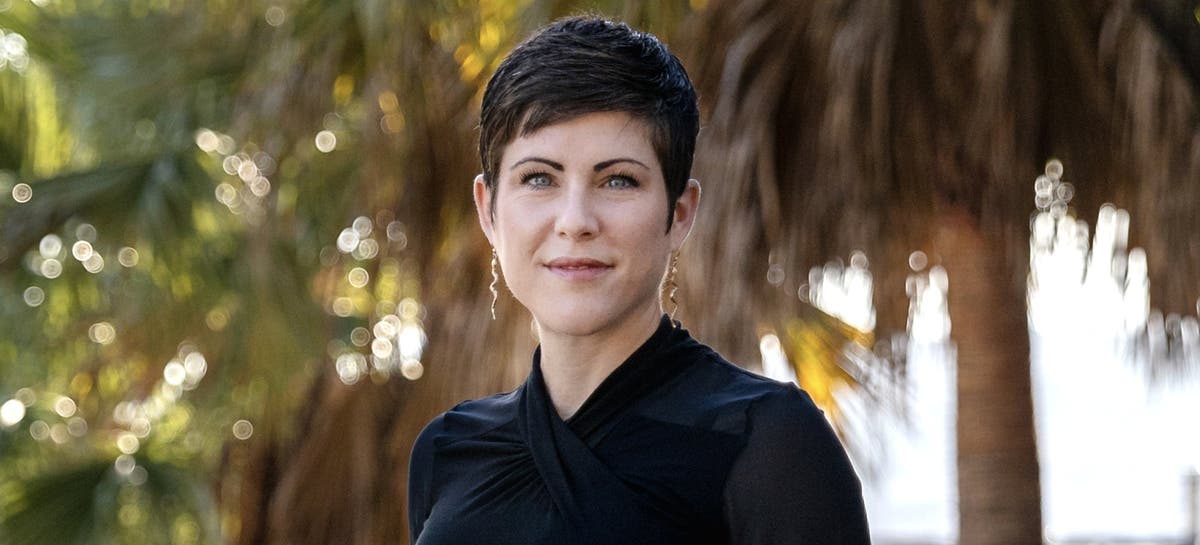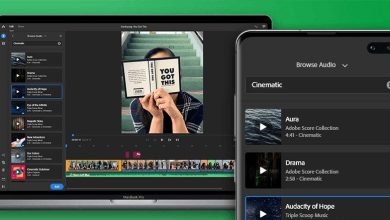Raising your voice and finding mentors in design

When Brooke Hopper thinks back about her career in design, she admits that she fell into it. Originally on a business track when she was in college and looking to switch majors, it was a friend of hers who told her to look into graphic design. Hopper didn’t know much about graphic design at the time, but she switched majors regardless, which she now describes as equally one of the best decisions she’s ever made and also blind luck that the opportunity presented itself to her.
Having now been with Adobe since 2015, first starting off as a senior experience designer, and now the lead experience designer for drawing and painting, Hopper says her time on the team has been nothing less than amazing. And the main reason why? The people. “I get to constantly work with people who are incredibly smart and talented. I am where I am in my career because people on the team have shared knowledge with me and mentored me,” she says.
And that mentorship is at the heart of how Hopper recommends professionals, particularly women, find their voice and creativity. In our interview, Hopper shares more about overcoming false barriers, encouraging women, and why having empathy is important for careers.
You were recently on an episode of the Wonder Women Tech Show, where you talked about “false barriers to creativity.” What is your advice for people trying to overcome those barriers?
We have to normalize creativity. We have to realize that creativity isn’t just visual—it can be business strategy or problem solving. When we believe that creativity is purely visual or audio, we begin to think ‘that’s not for me,’ and you stop trying. Creativity comes in all different forms, so don’t doubt yourself! Also realize that creativity takes practice, so always try to stretch your skills and adapt.
How do you encourage and support other women–in your field and beyond?
That’s something that is really important to me. I believe that it is super important for women to have female mentors—particularly in the tech industry. There have been times in the past where I was the only woman in the whole company, so I know how out of place that feels.
You need to have mentors who can relate to your struggles, such as how women often wonder if they are being ‘too pushy’ or ‘too overbearing’ if they take charge. It’s really important to have conversations with other women about those struggles, so that you can build confidence.
On the topic of mentorship, you talk about how it’s difficult to find mentors sometimes. So, to flip the question, how should mentors seek mentees?
The first step is to tell other people that you want to be a mentor. Once that happens, someone can feel comfortable enough to approach you and remove that nervousness. Also, don’t be afraid to recommend people who you think would be good mentors! I remember first time someone came to me and asked if I could be their mentor and my first thought was, ‘me?’ I didn’t think I was ready!
And remember that mentees have a lot to offer. It’s a 50/50 relationship. I’ve learned so much from my mentees.
Adobe’s 2021 theme for Women’s History Month is Raise Her Voice, which celebrates and highlights employees, customers and partners worldwide who raise, support and amplify one another’s voice to drive progress for equality. What was the best advice you ever received that helped you find your voice?
I have two pieces of advice!
First, something that I learned from my dad. He taught me that everyone is a person. The most senior level person at a company has emotions and their own set of challenges, just the same as the person who just started their first day. It’s all about having empathy, so do not be afraid to speak with other people and relate to them.
Secondly, live your life and your career without regrets. Take opportunities and say, ‘yes, I want to try this.’ When I was first starting out as a designer, the person who owned the company I worked at asked me to write a job description for my manager position. I wrote it, and then told him that I wanted to take a shot at it, and he said okay. Don’t be afraid to take the road less traveled. You always have the opportunity to step back, but you don’t always have the opportunity to step forward again.
Source : Adobe








